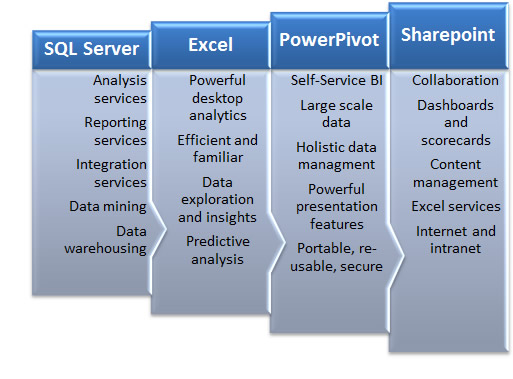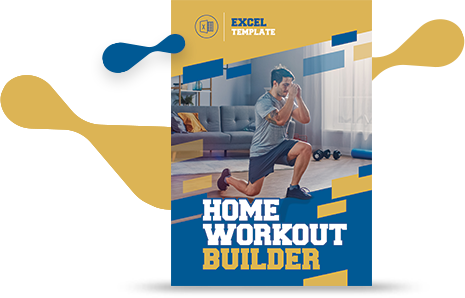Random Thoughts on Coaching Software
I have wrote on this topic couple of months ago (HERE) and I have been spending that time in trying couple of them. Now I would love to provide some general comments and thoughts to both developers and coaches looking into those solutions.
Before I even start please consider the following picture

The point of the picture is that you cannot ever satisfy everybody’s needs, being that the needs of your athletes, customers, friends or what have you.
Talking about software solutions in mind, this mean that it is foolish to try to do that. Coaches will always prefer to use couple of different solutions (calendaring tool, video analysis tool, notational analysis tool like SportsCode or Sideline, workout builder, GPS software, EXCEL, Access, R, you name it) and software companies trying to fulfill all of those will end up like that pair on the picture, plus with a software (donkey) that no one know how to use due all that different templates, modules, features, graphs and everything.
The long story short is KISS – Keep It Simple Stupid. There is one Catch 22 though: CONNECTIVITY.
The main feature of all good software are quick and easy import and export functions, where one could export their data into different format, like CVS or EXCEL and import them easily into the software. This could be solved by having “import template” which one could use to enter their bulk data and import them painlessly. One example could be entering player info – coaches usually have this in EXCEL or what have you, and it is major pain in the ass to enter the same data between different software packages.
Another crucial feature is drag-and-drop. In the era of touch screens and iDevices we are used to “physically” (I mean by mouse) manipulate objects, lists, data or what have you instead of typing. One simple example is that if I want to assign a player to a given session or vice versa, I should be able to drag and drop instead of typing in an input box. One could check how Trello works to get some insight. This also give some feeling of “control” over everything and ease of use.
The need for optimal flexibility and pre-made entries needs to be taken into account. I love to figure out the system by having a ‘blank slate’ option and building it from the ground up (yes, when I play video games I first goes to Settings menu). Even with the software solutions people love to stick to “invented here” solutions (see the Switch book). This by all means doesn’t necessary mean not providing any key examples or key data (like exercises). Definitely not providing plenty of them so users are lost or suffer from “not invented here” syndrome. If these are provided for learning phase, there should be an easy option to delete everything pre-made.
This could be also said for data analysis and/or forms. If the software only provide pre-made built-in options – guess what – I will choose another one. Maybe their build in solution is the best there is, but I would still need to create my own (“not invented here” syndrome). What I need is flexibility and guidance with some key examples.
This balance between flexibility (to modify everything) and pre-made solutions (that could be deleted after learning period or easily modified) can be applied to all modules of the software. Again, too much flexibility is wrong as is too little. I don’t care about flexibility of 100+ options, like font colors in reports, graph colors (those fancy graphs and templates, like 20 different 3D and shading options) – that just paralyzes me. What freaks me out is inability to modify forms, names and staff like that that I am going to use and present to players. Even worse if I can’t deselect the data players need to input or see. Keep flexibility to modify what is important, but stick to pre-made solutions to the parts that don’t need much user attention (or at least provide templates/schemes, like color scheme instead of me being able to modify every single color type).
Dashboard and reports should be neat and visual, without a need to read a book to understand it. There are numerous books on good design of dashboards and graphs, like work by Stephen Few, to name a few (did you notice what I just did there?). Use of bullet graphs, good tables, sparklines, colored bands (don’t overdo it), and simple indicators (I don’t want to see rainbow colors on indicators, stick to red only, or orange and red).
The analysis of the data is a bit tricky. There are numerous ways to calculate and visualize things. One thing – forget about team averages for monitoring individual players. I don’t care about their between individuals Z-score for their sleep quality rating – it doesn’t tell me jack sh*t. Develop good time series analysis. I also want to be able to modify analysis types and set my own flags. Too much flexibility and I would need a math degree. Too little and I will chose different software. Learn how to calculate SWC and TE and probably chances (if you don’t know what these mean you shouldn’t be in this business of making analysis software anyway) and how to visualize them. See work by Will Hopkins on this. I don’t care about p values since I am not making inferences to a population. I care about a single athlete in my group, not if an average effect on a population is statistically significant. Leave that to researchers.
In workout builders most coaches don’t want their players to carry iPhones in the gym to populate set and rep schemes. Not unless you are working with a distance client or a strength dominant athlete. Even them can fill the workout card and enter data later to compare planned vs. realized. Make this simple and an option. For me being able to create workout cards is enough along with managing their 1RM data (or any other testing data with easy importing function). I don’t need any fancy iPhone app for my guys to see workouts. I want that for a simple data collection (like Wellness, sRPE, HRV, BW, injury, nutrition, etc) where it actually matters.
I also don’t want my athlete to read a book on how to use their part of software. It should be simple and intuitive, or else they ain’t going to do it. If they need to log in every time the higher the chance they won’t. Making an app with saved login info with two clicks away of data input is the way to go. The more they need to write or click the higher the chance they won’t do it. We need higher compliance and honesty.
It would be great if the software is completely in the cloud (Web based) and I don’t need special software to be installed. This allows safer back-up (higher chance of your computer crashing that a server), quicker software update and use between platforms.
So, in short these are some of the features I am looking for
- Managing athletes and athlete data (e.g. testing, playing data) with simple import/export and drag and drop
- Drag and drop calendar where I could create event and participants (and easy get the attendance report)
- Assign individual training workload by using different indicators (sRPE, TRIMP, GPS data, tonnage…) either by easily importing data from other software or by in-system built collection (sRPE on iPhones)
- The ability to manipulate and get some form of the analysis between training load and reaction (like testing data, wellness data, performance rating or injury data). The software designers should understand this simple Banister Impulse-Response model.
- Having a neat way to categorize my workouts, sessions, their types. I should be able to import pictures from other coaching software.
- When assigning workout I should be able to assign tags to different components, and easily be able to create report on the distribution of those tags (i.e. how much time did this player spend on finishing activities this month, and compare that to what was planned)
- Having an ability to make strength workouts that are linked to testing data. For example I should be able to assign 5×5 at 80% to athletes, and then I get immediate weight based on their 1RMs and exercise relationship with the 1RM test (i.e. lunges to squat). Same thing for conditioning (i.e. using MAS).
- I should be able to quickly assign team sessions, yet quickly modify them to suit individual needs
- There should be Annual Planner where everything should be interconnected.
- I don’t want to sell my kidney to buy the software.
I will probably expand further on this in the next couple of weeks. There are definitely some great pieces of software out there, but most of them don’t fulfill all my needs (remember the picture above? It is applied to me too) and I would probably need to use couple of them – one as workout builder (AccelerWare and VisualCoaching for strength training, EDGE10 for skill sessions [looks great btw with all that tags], SessionPlanner for soccer drills, etc), one as monitoring and testing tool (Kinetic Athlete, GymAware, iThlete team version, Swift Speed Light, SpeedMat, FusionSport timing gates, jump mats) one for database (EDGE10, Smartabase).
The only problem is money. Software for these purposes is still expensive. Excel might be poor man’s option for now. Till next time…











Responses